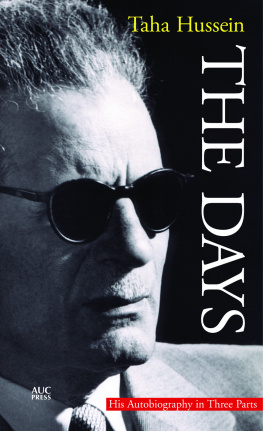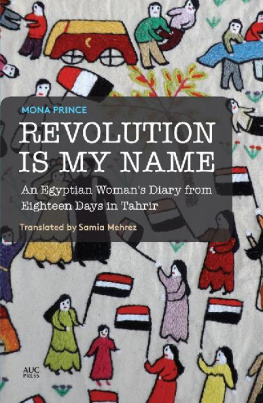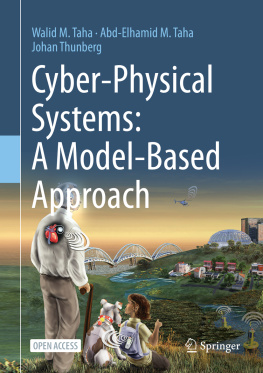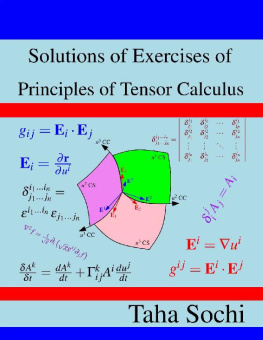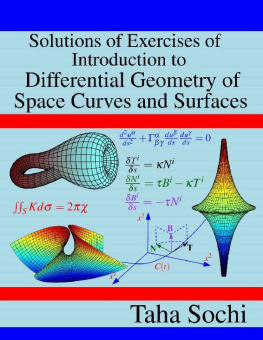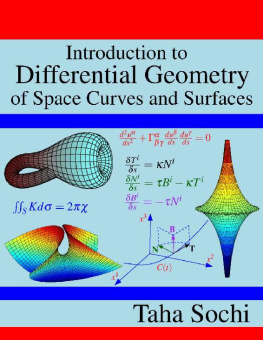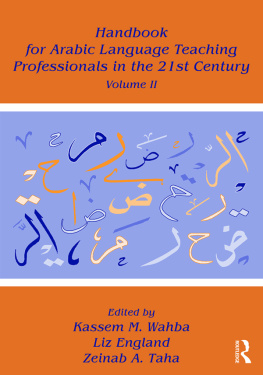Ḥusayn Ṭāhā - The days: Taha Hussein ; his autobiography in three parts
Here you can read online Ḥusayn Ṭāhā - The days: Taha Hussein ; his autobiography in three parts full text of the book (entire story) in english for free. Download pdf and epub, get meaning, cover and reviews about this ebook. City: Cairo;Egypt, year: 2001;2014, publisher: The American University in Cairo Press, genre: Detective and thriller. Description of the work, (preface) as well as reviews are available. Best literature library LitArk.com created for fans of good reading and offers a wide selection of genres:
Romance novel
Science fiction
Adventure
Detective
Science
History
Home and family
Prose
Art
Politics
Computer
Non-fiction
Religion
Business
Children
Humor
Choose a favorite category and find really read worthwhile books. Enjoy immersion in the world of imagination, feel the emotions of the characters or learn something new for yourself, make an fascinating discovery.
- Book:The days: Taha Hussein ; his autobiography in three parts
- Author:
- Publisher:The American University in Cairo Press
- Genre:
- Year:2001;2014
- City:Cairo;Egypt
- Rating:5 / 5
- Favourites:Add to favourites
- Your mark:
- 100
- 1
- 2
- 3
- 4
- 5
The days: Taha Hussein ; his autobiography in three parts: summary, description and annotation
We offer to read an annotation, description, summary or preface (depends on what the author of the book "The days: Taha Hussein ; his autobiography in three parts" wrote himself). If you haven't found the necessary information about the book — write in the comments, we will try to find it.
Ḥusayn Ṭāhā: author's other books
Who wrote The days: Taha Hussein ; his autobiography in three parts? Find out the surname, the name of the author of the book and a list of all author's works by series.
The days: Taha Hussein ; his autobiography in three parts — read online for free the complete book (whole text) full work
Below is the text of the book, divided by pages. System saving the place of the last page read, allows you to conveniently read the book "The days: Taha Hussein ; his autobiography in three parts" online for free, without having to search again every time where you left off. Put a bookmark, and you can go to the page where you finished reading at any time.
Font size:
Interval:
Bookmark:
The Days
The Days
Taha Hussein
His Autobiography in Three Parts
Translated by
E. H. Paxton
Hilary Wayment
Kenneth Cragg
The American University in Cairo Press
Copyright 1997 by
The American University in Cairo Press
113 Sharia Kasr el Aini, Cairo, Egypt
420 Fifth Avenue, New York, NY 10018
www.aucpress.com
An Egyptian Childhood
First published in English in 1932 by G. Routledge and Sons
The Stream of Days
First published in English in 1943 by Al-Maaref
A Passage to France
First published in English in 1976 by E.J. Brill
All three volumes first published in Arabic under the title al-Ayyam:
volumes one and two in 1929, volume three in 1973
All rights reserved. No part of this publication may be reproduced, stored in a retrieval system, or transmitted in any form or by any means, electronic, mechanical, photocopying, recording, or otherwise, without the prior written permission of the publisher.
Dar el Kutub No. 17875/00
ISBN 978 977 424 635 7
8 9 10 11 12 14 13 12
Printed in Egypt
Contents
AN
EGYPTIAN CHILDHOOD
Taha Hussein
Translated by E. H. Paxton
Taha Hussein was born on 14 November 1889 in Izbit il-Kl on the outskirts of the town of Maghgha in Upper Egypt. He belonged to a large family of very modest means and, blinded in early childhood by the clumsy ministrations of the local barber/surgeon, he seemed destined for a limited religious education of a traditional type, and for a stunted life. But he soon broke out in a direction of his own choosing, and as educator, reformer, thinker, and writer on many subjects he blasted a trail that led, through many tribulations, to wide recognition as a leader of modernism and to many national and international honours.
He was, in fact, the first graduate of Egypts first modern university, later the first Egyptian to become Dean of its Faculty of Arts, and later still the first Egyptian to be nominated for a Nobel Prize in literature. The first volume of his autobiography was the first piece of modern Arabic writing to be recognised as a masterpiece, and its English translation was the first accolade it received from outside the Arab world.
Thirty years ago, his prolific and seminal output provided me with the ideal subject clearly definable, and at the same time substantial and central to the field for the first doctoral dissertation in a western university and the first book in a European language on any aspect of modern Arabic literature.
With the views I expressed then, Taha Hussein and his family have never been entirely pleased, although I take it as a mark of their toleration and qualified confidence that I am entrusted with the writing of this introduction. I do not myself consider the judgements I reached then as being unduly severe. The stature of a man who achieved and inspired so many firsts is self-evident, but it would be anomalous if the ideas he expressed in more than sixty books and in the heat of some fierce polemics on political, educational and literary issues had always been correct or even fully thought out.
If an overall corrective is needed to my early assessment of Taha Husseins work, it lies in the historical perspective which the lengthening years have brought. I had occasion recently to write of the generation of Arab intellectuals of which he was the most representative and most immediately influential member:
They were not cautious philosophers or meticulous scholars, but bold spirits casting their bread upon the waters. Their greatness was in their open-mindedness, their courage, their tenacity. Their achievement was that they swept away a conservatism part of which at least badly needed to be swept away; they accustomed an entire generation to thinking along new lines.
Of the qualities that enabled Taha Hussein to leave his mark on an entire nation, his sensitiveness and independence of spirit shine through every page of his autobiography. What is not immediately evident from this source alone is the magnitude of the mental obstacles he had to overstep, the dedication and toughness he needed, and the price he had to pay for fulfilling his potential.
The early articles and poems which Taha Hussein published between 1910 and 1913 while he was still a student have seldom been taken into account in overall estimates of his career. This is because he never had them reprinted in book form, These early outbursts reveal him as a headstrong youth, more fiery than compassionate so outraged, for example, at the governments decision to licence prostitution that he could invoke the full rigour of Islamic law:
Visit its judgements upon every wrong-doer;
Let not half-heartedness turn you back.
Lapidate and flog as God commands,
And you shall be spared whoredom and debauchery.
Nevertheless, we have here a necessary starting point for measuring the immensity of the strides he was soon to take. Thus, in a series of articles published in al-Hidaya in 1911 on the position of women in society, he was already arguing stoutly against their veiling and for extending to them the benefit of education. Yet, while acknowledging that Islamic law had always allowed Muslim men to marry Christian or Jewish women, he was alarmed at the possible influence that European wives might have on Muslim husbands at a time when his compatriots had lost their cultural stability and self-confidence and were hell-bent on aping European ways, so that he concluded:
I have no doubt that we need to exercise extreme caution in availing ourselves of this provisionnamely, that a Muslim may marry a woman who adheres to a Scriptural religion. Indeed I see no harm in asserting that it is now sinful and hateful to do so. Many of us marry European women of Scriptural faith because we desire them for their beauty, their reputed intellectual and cultural attainments, and the like. But what is the result of such a marriage? Nothing but the transformation of the man together with his household, his sons and his daughters, into Europeans through and through except in the case of a handful of unusual individuals, too few to take into consideration in formulating general rules.
I can therefore proscribe marriages of Muslim men to European women of Scriptural faith or at least severely restrict their incidence, especially if to what I have said is added that faith has become so thoroughly corrupt in Europeans as to be almost non-existent.
Less than seven years later, he had himself married a Frenchwoman who has remained a devout Catholic, yet to whose beneficial influence he has repeatedly paid tribute, and he was launched on a vigorous career in the course of which by dint of challenge, exhortation and example he provided Arab Modernism with its most appealing formulation: not Innovation but Renovation, the revitalisation of a great cultural heritage by bringing the best modes of Western thinking to bear upon it, and this in emulation of forefathers who, in the heyday of Islam, had drawn freely on the resources of Greek civilisation.
Sustaining him through this tempestuous career was the belief perhaps naive but firmly held, and shared by many of his contemporaries in the duty and the power of the intellectual to reshape his society by fearless assertion of the truth as he sees it. From this ideal of service Taha Hussein never departed, and from its cost he never flinched. Thus, during a particularly difficult period stretching from March 1932 to November 1934, when the government of the day not only deprived him of State employment
The same dutifulness informs many of his writings. It was as a conscious attempt to fill a gap, to test Arabic as a vehicle for new literary genres, that he published a volume of epigrams,
Next pageFont size:
Interval:
Bookmark:
Similar books «The days: Taha Hussein ; his autobiography in three parts»
Look at similar books to The days: Taha Hussein ; his autobiography in three parts. We have selected literature similar in name and meaning in the hope of providing readers with more options to find new, interesting, not yet read works.
Discussion, reviews of the book The days: Taha Hussein ; his autobiography in three parts and just readers' own opinions. Leave your comments, write what you think about the work, its meaning or the main characters. Specify what exactly you liked and what you didn't like, and why you think so.

